Hi Folks!
Thanks for stopping by! Well, fall is definitely here, and thank goodness: I'm not a fan of ninety-degree days!
I bet that when you read the title of this particular post, you immediately thought of cute, fuzzy little baby ducklings, didn't you? I don't blame you at all, but in fact, the duckling I'm writing about today was actually half-grown when I rescued him. He was far more scrawny and gangly than he was cute and fuzzy. In many ways, though, Little Nipper was still a baby: he stuck close by mama's side, and imitated her in everything she did, trying hard to learn how to be a Big Duck.
His mother is Freckle Duck, the very same Freckle Duck who continues to elude the best nest-finding efforts of both myself and Animal Control Officer Jeff. For three years running, now, she's managed to hide her nests so well that we never find them. This year, she hatched eight ducklings. Fortunately for the sake of population control, area hawks and snapping turtles brought the number of surviving offspring down to two. Nipper and Peeps - his sibling - had managed to survive in spite of the odds, and were well on their way to adulthood when disaster struck.
I was feeding the gang one summer morning when I noticed the length of fishing line floating among the ducks. There seemed to be five ducks caught in it, though not so tightly that they couldn't escape. Little Nipper was among those caught, which really tugged at my heartstrings: he was just a baby! He was too young for this sort of catastrophe! I held out hope that they would somehow untangle themselves without my interference, and adopted a wait-and-see attitude.
In a matter of days, the ducks managed to disentangle themselves, but Nipper now had such a pronounced limp that something was clearly wrong with him, and it was no doubt fishing line-related. His right foot dragged uselessly behind him as he limped along. He was so obviously injured it was a wonder that a hawk hadn't already made a meal of him. I grabbed him up one morning with a view to taking him to the vet's. He was fairly easy to catch in his compromised condition, and I plopped him gently in the ever-present critter carrier.
Before I drove off, I walked back across the boat house parking lot, intent on retrieving the bag of cracked corn I'd left behind during Nipper's capture. It was then that I saw Officer Jeff rounding the corner of the boat house and heading in my direction. He told me he'd gotten a phone call about a duck with some fishing tackle attached to it. I had just finished feeding the entire gang and hadn't seen anything of the sort, which was what I told Jeff. I went on to mention the injured duckling, who was at that moment firmly ensconced in the carrier in the front seat of my car. Jeff walked over for a look.
He told me then that this was the exact same duckling he'd found tied to a tree a few days earlier. Nipper hadn't really been tied to the tree, he'd accidentally gotten himself wound up in the underbrush because he'd had that fishing line wrapped around his leg. Jeff had cut him free, and now, here I was a few days later, taking the poor little guy to the vet. We surmised that the phone call Jeff had gotten had probably been about Nipper.
There was something about the timing of it all that clearly struck Jeff. Here he'd driven to the pond in response to a report of a critter crisis, only to find me already there, a few steps ahead of him! I think it was at that moment that he developed a measure of faith in me that he hadn't had before. We'd always gotten along well in the past, but it seemed that now, after this particular incident, the realization that I was serious about the animals, and not just some crazy duck broad, kind of jelled in his mind. Before he left, he offered up a fist pound. It spoke volumes.
Little Nipper's vet, Dr. Susan, inspected his leg and told me that the fishing line had caused nerve damage. The line had cut off circulation to his foot for a time, and there was no way to know how much tissue he was going to lose. She was certain that he'd lose some of the webbing in his foot, but also reasonably sure that the foot itself would survive. She gave me antibiotics for the infection and told me that if I hadn't brought him in, that infection would've killed him. Yikes!
It was clear that he was going to need some kind of therapy, not to mention regular doses of the antibiotic, so into my bathroom he went. He was deeply miserable from the start, and remained so for the next seven days. Having been wrenched away from his mother had been a traumatic experience for him - I knew this because as I carried him toward my car, he cried piteously for mama, who chased along after us for several yards. It broke my heart that I couldn't explain to them that the separation was only temporary.
It was immediately obvious that my bathtub would not be big enough to give Nipper proper hydrotherapy in. I called Pat Mitchell - she who had adopted both Ducky and Puddleduck after they became permanently lame - and asked whether she had anything big enough for a duck to dunk himself in. As luck would have it, she had just the thing: a 52-gallon plastic storage container. It worked perfectly, and once it was filled with water, it became Nipper's hydrotherapy tub.
Hydrotherapy entailed much more than just letting Nipper swim around. It was important that he use his bad leg, so every time I put him in the water, I'd gently pull backwards on a handful of his tail feathers. Because he was afraid of me, he'd pump his little legs extra hard, trying to get away. We'd do that over and over for fifteen-odd minutes at a stretch, then I'd take him in to rest.
Before every round of hydrotherapy, we'd do physical therapy. I should point out here that Dr. Susan mentioned none of these things during our time in the exam room. We didn't discuss rehab at all. It was something I came up with when it became clear that he wouldn't heal on his own, at the pond. So I devised some exercises that I thought would provide the most benefit for a flightless duck.
Physical therapy involved me putting him on a harness and leash - the same ones I'd used to teach my cats how to walk with me outside, then letting him walk around the back yard. In truth, he wasn't walking so much as he was running to get away from me. He would race toward the shady areas of my lawn with me following along at his heels. Then I'd pick him up and carry him back to the middle of the yard. When I put him back down on the ground, he was off and running again. Once he'd reach the shade, he'd turn his head, reach around behind him and try to chew the harness off. How he hated every minute of it!
It wasn't just the harness he disliked; he hated me, as well. And he told me so, every single day. I'd go into the bathroom in the morning to give him his meds and clean up all the poop, and he'd slouch miserably in the corner and announce, "I hate you, Kelly!" It made me sad, but I certainly understood: he was still a baby, missing his mama. And while on some instinctive level, he understood the concept of being eaten by a predator, he had no understanding whatsoever of humans and bathrooms and good intentions.
A new problem developed on Day Three: contracture. He wasn't using the injured foot sufficiently to stave off muscular contracture, and his foot had begun to curl under. I consulted with Dr. Susan, who put the idea in my head when she said there was no point in trying to put a splint on him. To this day, I don't know why she said that, but I'm glad I ignored her. I discussed the problem with fiance John, and between the two of us, we devised a duck-foot-shaped splint, custom-made just for Nipper.
We traced his foot around a sheet of plastic, then cut two pieces - one for under his foot, and one for on top. We taped it all together with his foot sandwiched in between, using coach's tape. It worked perfectly! I kept the splint on his foot for a day, making him walk with it on during physical therapy, and the contracture disappeared after less than 48 hours. The splint was a resounding success.
As Nipper continued to improve, and the time to return him to the pond drew near, I began to wonder whether mama would take him back. Surely, she was used to the idea that once a predator took her young, she was never going to see that duckling again. But what about one reappearing after eight days? I knew that he had imprinted on her, but had she imprinted on him? Did it work both ways, or would she have no idea who he was? The answers mattered to some degree: while he was half-way to adulthood, and could, in theory, get by on his own, he still had a lot to learn about how to be a Big Duck, and mama was the best duck to learn that from. I'd have to wait and see.
The day finally came that I felt comfortable returning him to the pond. Those eight days of rehabilitation had dragged on much more slowly than they normally did with adult ducks. That was probably because I knew the adults were just annoyed by the disruption to their lives, while Nipper was clearly scared and depressed at the separation from his mother. In addition, I think he pooped twice as much as the adults, even while he refused most of the foods the big ducks ate. Because he ate so little while in my bathroom, I ended up worrying as much about him getting a decent meal as I did about successfully rehabbing him. All in all, he ate enough. Not a lot, but enough.
When I released him at the pond, he made a beeline for the water. Swimming in a 52-gallon plastic storage container is not at all the same as swimming in your home water, with all its familiar smells, snacks, and friends. In no time, Nipper found mama, and while he was overjoyed to see her, her response seemed lukewarm by comparison. I got the distinct impression that she was thinking, "You're BACK??? I thought you'd grown up and moved away!" Mama seemed about as enthused as a human parent would when their adult child wants to move back home again.
The good news was that Nipper's sibling, Peeps, had managed to avoid becoming a hawk snack in his absence, and the two were thrilled to be together again. They found one another immediately, and have rarely left each other's sides since. As they've grown, they've taken numerous expeditions together around the pond, always finding mama eventually, but gaining confidence about being Big Ducks in her absence.
Little Nipper walks perfectly well, now, without a trace of the limp he still had when I returned him to the pond. A substantial portion of the webbing on that injured foot became gangrenous. Dr. Susan said that would happen. She advised me to let nature take its course, saying that the gangrenous parts would eventually fall off, and that they did. Where the dead tissue had been, there's now a triangle shaped space that used to be webbing. He swims perfectly well without the missing webbing, and in fact, he's grown to look so much like the duck I assume is his father that that web-less area is the only way I can identify him now. Thankfully, he's chosen not to hold a grudge, and bellies up to the bag of corn with all the other ducks. This was a good rescue, and a great rehab. They don't always turn out so well.
So that was the big excitement for me, this summer. I'm glad things went as well as they did, but it must be said that there was an astonishing amount of fishing tackle left lying around the pond this year. There was even more of the stuff this summer than in past years. And it's never just a foot or two of fishing line, it's often seven to ten feet long, usually with the hook still attached. Since the city provides trash cans all around the pond, I have no idea why fisherman can't be bothered to clean up after themselves. The only possible explanation is a shameful level of laziness.
So please, if you fish regularly, or know someone who does, please make sure you're cleaning up after yourself, and ask your fishing buddies to do the same. It's not just animals who are at risk of injury, it's barefoot children as well. I know I'd be really mad if my child had to get a tetanus shot because of someone else's laziness! And so would you! Let's all do our part to keep our parks and public spaces clean.
That's all for now, folks! I hope you're all enjoying this cooler weather! Until next time, please be kind to all the critters!
P.S. And while you're here, why not leave a quick comment so that I know you stopped by? Thanks so much!
Tuesday, October 19, 2010
Subscribe to:
Post Comments (Atom)
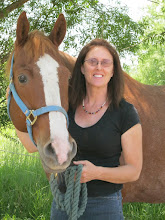






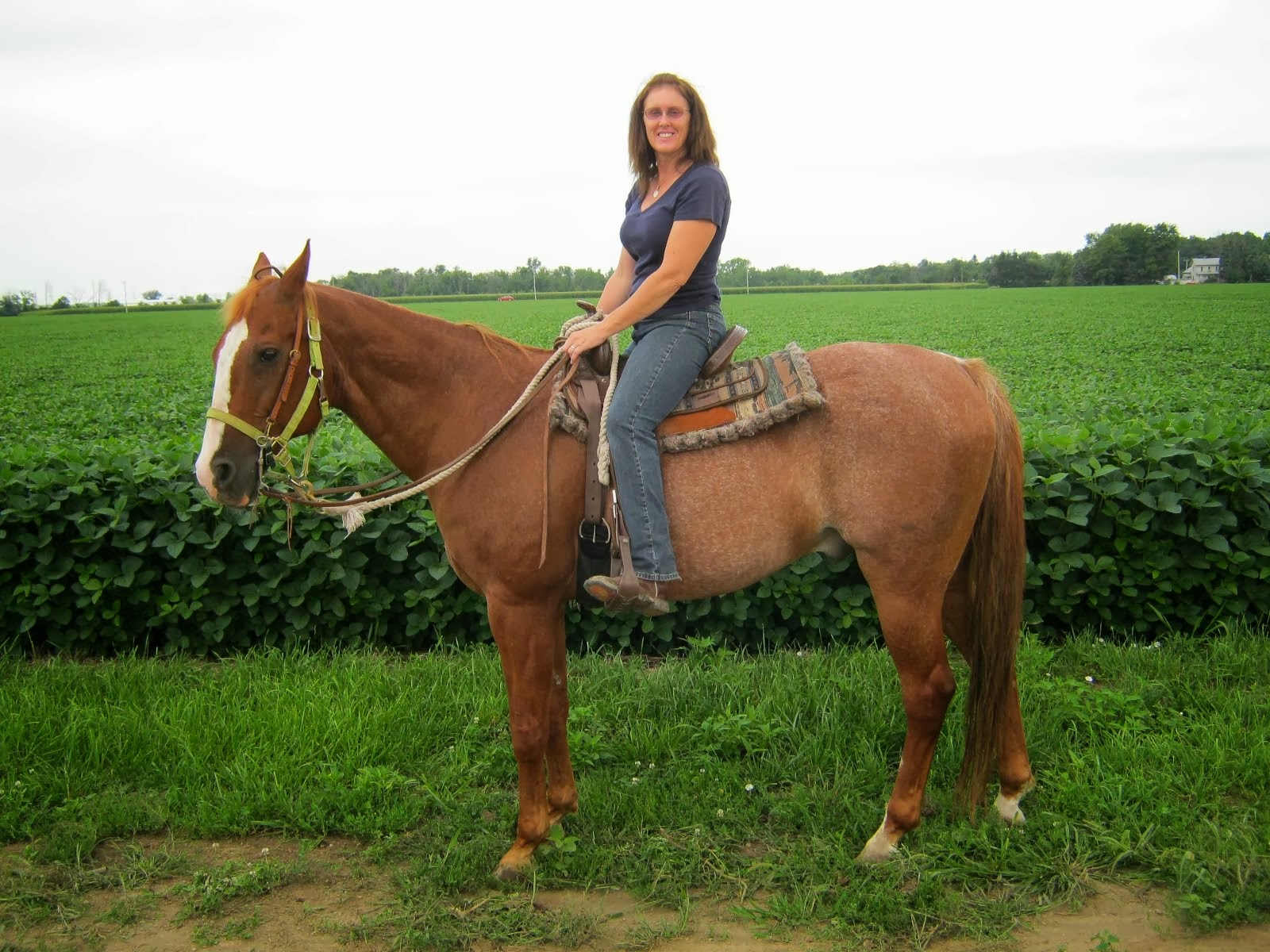





























































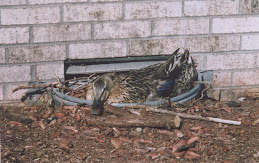




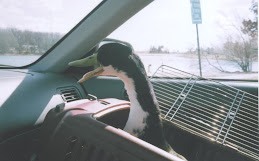















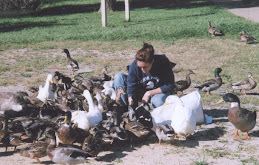



8 comments:
Kelly,
Your dedication to Nipper is as amazing as your inventiveness. I loved reading about the hydrotherapy where you kept hold of his tail feathers as much as your description of the foot splint.
There are very few people who would do as much for a feral duck as you have, and you have my congratulations, my thanks, and even my respect (at least in this one narrow area of your life).
I know what you mean, Bob. My respect for you goes just as far as the nice comments you leave about me!
You are the critter lady for sure! Glad I could help with the construction of the duck splint...it's always a great feeling to know something you've done has helped right a wrong done by some uncaring individual..meaning that inconsiderate fisherman who did not clean up after himself!
Great story, great writing and great compassion. Thank you for being you. Charisse
It's not easy being me, Charisse! LOL
I have had to rescue two ducks off ponds because of fishing line. One was a wild mallard that suffered because I couldn't get anybody to actually look at the leg to see if it was salvageable before doing unnecessary surgery, and one was Big Dick who joined us in our home for over a year. His desire to avoid human cooties proved valuable for him healing and walking again. I miss that duck, but he is in a nearby yard that protects him from predators, but doesn't have a human insisting on snuggles. I think he is pretty happy, though it could be better.
Kelly, I saw your post and wanted to ask you if you could help me...I found a white pekin duck at a park w/fishing wire wrapped tightly around his leg, we were able to catch him and remove the wire, then we let him go but he was still limping and when he went back into the pond, he kept that leg up.....do you think I should go back to the pond and try to catch the duck to take it to a vet ? I was at the pond last night and the duck did not have the wire around him at that point ...how long would it take to cut the circulation off--it was very tight around his leg. If you could email me at laure8929@gmail with any information, I would greatly appreciate it. I loved your blog, my husband thinks I'm the only person who obsesses with the ducks and geese at the park we go to!!
Note to readers: I did contact Laure and suggest that she take the Pekin to a vet for an exam.
Post a Comment